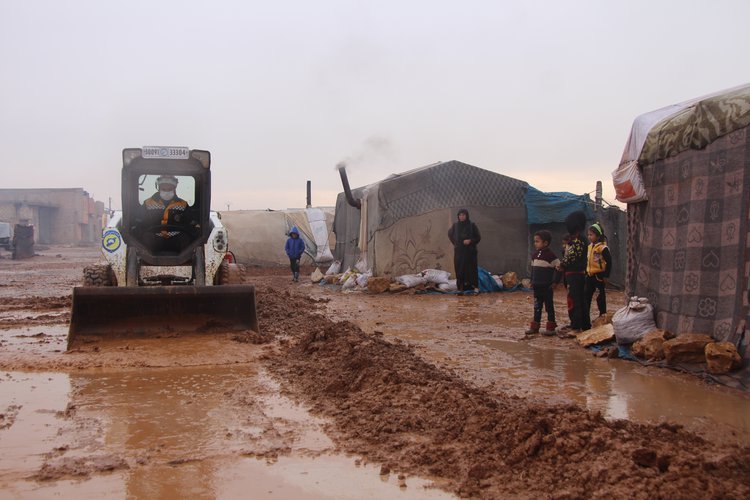
A Report on the Need Assessment In Northwestern Syrian Camps

This report presents the most important basic needs of the IDPs in a study of 192 camps in Northwest Syria. Humanitarian responses have been limited to temporary solutions. In order to end the suffering of the IDPs, a long term solution that provides services and provisions to improve camp conditions must be established.
The suffering of Syrian internally displaced persons (IDPs) in the camps of Northwest Syria is increasing year after year, as they have been waiting for a long time for a solution that ends their tragedy and returns them to their homes in their cities and villages. The suffering of these IDPs has increased during the past two years due to the scarcity of humanitarian aid, the spread of the coronavirus, and the continuation of the attacks by the Syrian regime and its allies.
According to the Global Camp Coordination and Camp Management (CCCM) Cluster, 1,683,404 IDPs, including 399,353 women and 945,526 children, live in 1,389 formal camps in Northwest Syria, in addition to thousands of IDPs in informal camps.
The Information Management Unit of the Syrian Civil Defense (the White Helmets) has prepared a report presenting the most important basic needs of the IDPs in 192 camps in Northwest Syria in an attempt to enhance the capacity of humanitarian actors to plan and provide timely humanitarian support that meets the required needs, aiming at the improvement of camp conditions and reducing frequent tragic accidents.
The preparation of this report coincides with the onset of the winter season, in which the Syrian IDPs suffer from extremely difficult living conditions, as tragic accidents happen every year, including the sinking of tents and the uprooting of other tents by the wind, or their erosion by torrents, in addition to the burning of tents, and the difficulty of humanitarian access due to rough roads.
These incidents have led annually to deaths and injuries among the Syrian IDPs, as the humanitarian response provided by the actors over a decade has not been able to provide sustainable solutions to the camps of Northwest Syria. Instead, most of the humanitarian responses were limited to temporary solutions, such as providing food and hygiene kits. However, the deaths, injuries, and tragic conditions of the IDPs can be avoided through the improvement of infrastructure and through the provision of basic services.
The White Helmets volunteers have carried out more than 61,200 service operations within 1,921 formal and informal camps in Northwest Syria during the two years preceding the preparation of this report, i.e., between October 2019 and October 2021, including more than 32,400 service operations related to the infrastructure of these camps.
Disinfection operations, as precautionary measures to prevent the spread of the Covid-19 epidemic, topped the service operations with more than 17,000 operations, considering the spread of the virus and infections in Northwest Syria. The service operations also included more than 9,000 operations of facilitating lands and spreading gravel on the floor, more than 1,900 sewage line digging, more than 1,600 road opening, in addition to preparing more than 900 camps.
Press the link below to read the full report the Need Assessment In Northwestern Syrian Camps
